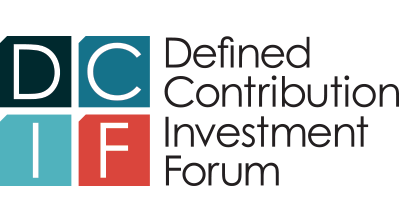
By Anil Shenoy, Director, Global Client Solutions, IFM Investors
May you live in interesting times
A phrase that is often seen as both a blessing and a curse, ‘May you live in interesting times’ feels particularly apt today. We’re navigating an era marked by persistent uncertainty, shaped by rising geopolitical tensions, fiscal pressures, and evolving central bank policies. This complex and often unpredictable backdrop presents a significant challenge for investors. For Defined Contribution (DC) default funds, which typically rely heavily on listed equities and bonds, such volatility can have a material impact on performance and, ultimately, member outcomes.
IFM Investors’ second annual Private Markets 700 Research Report provides valuable insight into how institutional investors globally are approaching private markets. This year’s survey, covering insights from over 700 institutional investors, revealed that risk management is the biggest driver of private markets investing, with nearly half of investors citing diversification, inflation hedging and resilience as their principal reasons for allocating to private markets.
With asset owners increasingly seeking investments that can strengthen the resilience of their portfolios, an allocation to private market infrastructure equity can help meet this need.
Why infrastructure equity, and why now?
Infrastructure assets such as digital networks, transport systems, and utilities are fundamental to the functioning of modern society. As an asset class, infrastructure provides long-duration cashflows that align well with long-term pension liabilities. Many of these assets benefit from inflation-linked revenue streams, making them a valuable buffer in inflationary environments. Their essential nature is supported by consistent demand, contributing to stable returns with relatively low volatility across economic cycles. In addition, the Mansion House Accord has put private markets firmly on the DC agenda. Signatories have pledged to allocate at least 10% of DC default funds to private markets by 2030, with at least 5% directed towards UK-based opportunities1. Allocating to infrastructure equity can play a role in meeting these commitments.
But even without the government nudge, there are three compelling reasons DC default funds should consider infrastructure equity:
- Diversification: Global equity markets are looking increasingly concentrated, particularly towards US stocks and the ‘Magnificent Seven’ (Apple, Microsoft, Alphabet, Amazon, Nvidia, Meta, and Tesla). Infrastructure equity offers a different source of potential returns, which can help reduce concentration risk at the portfolio level.
- Long-term alignment: Infrastructure assets are for the long term and often inflation-linked making them a natural fit for both the accumulation phase and the decumulation phase, when members start seeking a more regular income.
- Improved access: Innovative new products such as long-term asset funds (LTAFs) and other open-ended fund structures have been designed to balance the need for investor access with the long-term nature of the underlying assets.
Why infrastructure can resonate with members
Member engagement remains a top priority for DC schemes. In a world where pensions often feel complex and disconnected from everyday life, infrastructure equity can offer the potential for interesting stories that can help with member engagement. These are assets we use and rely on, from the renewable energy powering our homes, to the transport networks we commute on, to the digital infrastructure that keeps us connected. Infrastructure assets are integral to our everyday lives.
When members discover that their pension savings are helping to build wind farms, upgrade airports, or expand broadband access, the purpose of long-term investing becomes far more tangible and helps foster a sense of ownership. Therefore, we believe, infrastructure equity offers an opportunity to make pensions feel personal, purposeful, and pertinent.
This article is provided for informational purposes only. It does not constitute an investment recommendation, offer or solicitation and should not be relied upon as investment advice or as the basis for any contract or commitment. This information does not constitute investment, legal, accounting, regulatory, taxation or other advice. IFM Investors Pty Ltd (“IFM Investors”) recommends that before making an investment decision, each prospective investor should consult a financial advisor and should consider whether any investments are appropriate considering their particular investment needs, objectives, and financial circumstances. Tax treatment depends on each prospective investor’s individual circumstances and may be subject to change in the future. This information should not be reproduced without the written consent of IFM Investors.
IFM-29Oct2025-4936847
